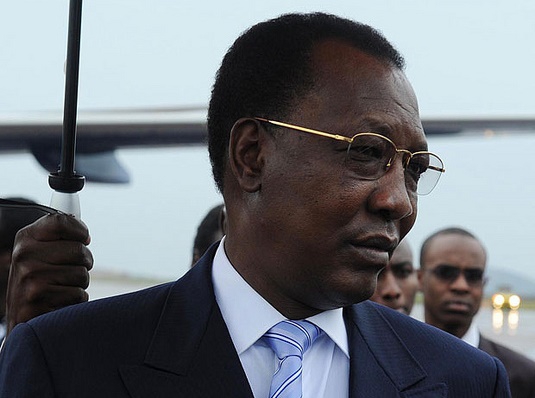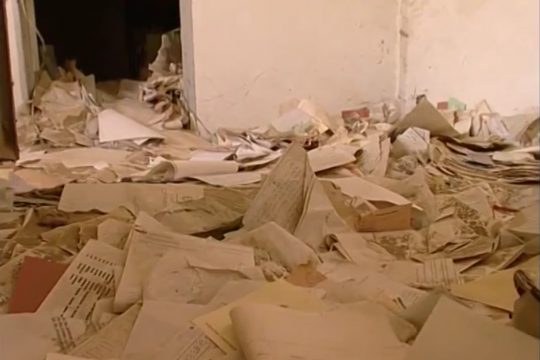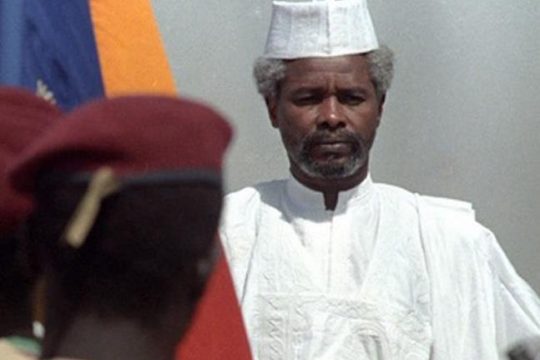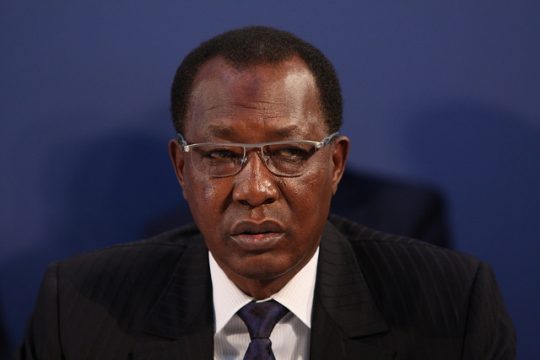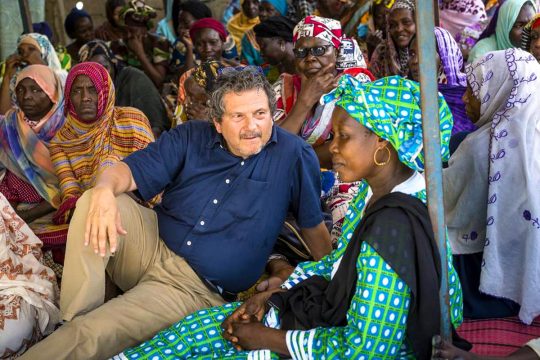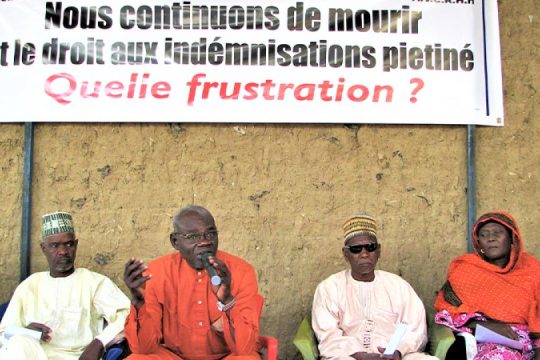Lawyers of former Chadian president Hissène Habré, on trial for war crimes, crimes against humanity and torture, are counter-attacking from outside the special court in Dakar which is trying him and which they are boycotting like their client. First in their line of attack is current Chadian president Idriss Deby, who ousted Habré, followed by Senegalese President Macky Sall, whom they accuse of protecting Deby.
Lawyers Ibrahima Diawara and François Serres say Deby should not be running his country but be in a cell in Dakar’s Cap Manuel prison with Habré.
Habré is on trial for crimes committed in Chad under his regime (1982 to 1990), notably by his notorious political police, the Directorate of Documentation and Security (DDS). He is being tried by the Extraordinary African Chambers, set up within the Senegalese justice system under an agreement between Dakar and the African Union.
On Wednesday July 22, two days before Habré’s trial was due to open, two ministers from Deby’s government invited journalists to a press conference in Dakar to hail the opening of this “historic trial” but also to reiterate that their President was a “victim”, not an accomplice of Hissène Habré and his DDS.
Idriss Deby “was never associated from near or far with the Directorate of Documentation and Security, the killing machine that is now in the dock”, said Chadian Minister of Communication Hassan Sylla Bakari, admitting only that Deby was head of the army at the time.
“Deby headed all the security services”
“It is difficult to falsify history or to rewrite it,” the two Habré lawyers respond in a press release. “It is true that Idriss Deby was army chief of staff, as the two ministers said, but he was later appointed adviser to the presidency for all defence and security matters. That means he was in charge of all the defence and security services, including the DDS.”
Like their client Habré, lawyers Ibrahima Diawara and François Serres contest the legality and independence of the Extraordinary African Chambers (EAC) and are boycotting the trial.
The two lawyers say the EAC has summoned Idriss Deby “twice to answer on facts that fall within the mandate of the court and in which he is considered to have been directly involved”.
According to them, Deby refused to answer the summons because he feared that he would be charged. An opportunity nevertheless arose, the two lawyers say, which the EAC did not have the courage to take. “The judges even had the possibility to question him a few months ago when he was attending an international security conference in Dakar,” they say.
“The judges preferred not to do so, thus violating their obligations and mandate and proving once again, if it were necessary, their lack of independence and their submission to the two political executives (Chad and Senegal),” the lawyers continue. “This set a path allowing Idriss Deby to refuse to cooperate with the EAC by refusing to hand over people it wanted and thus ruining the image of this international court, which has become just a machine to execute President Habré.”
Refusal to hand over Saleh Younouss and Mahamat Djibrine
The Chadian government had been cooperating with the EAC, but relations became tense in August 2014 after the court rejected N'Djamena’s bid to be a civil party in the Habré case. In retaliation, Chad refused at the end of October 2014 to allow a fifth EAC rogatory commission into Chad, and refused to transfer to the EAC two of Habré’s suspected main accomplices, Saleh Younouss and Mahamat Djibrine. Younouss and Djibrine were put on trial in Chad with some 20 other people and in March sentenced to life in prison
Habré’s lawyers say the position of the EAC judges is a source of conflict with Chad and “one of the factors behind its refusal to cooperate, along with its fear of having the real history of Chad revealed to the world”. “The regime has continued to terrorize Chadians throughout the judicial investigations,” they say, “with the complicity of the EAC, which has not called any witness for the defence.”
Habré’s lawyers think Deby, who was “head of the armed forces and physically present on the ground during operations, cannot escape justice, as is the case for all the political and military leaders of that period, the one before and the one after the fall of President Habré.”
“The EAC judges and (Senegalese) President Macky Sall are not dispensing justice,” the lawyers also say. “They are carrying out a contract with the enemies of Africa, one that provides for selective and politically motivated justice, and they are incited to do so by the billions (of CFA francs) misappropriated from the Chadian people to fund a conviction that has been bought in advance.” This is a reference to the 2 billion CFA francs that the Chadian government has provided in funding for the EAC.
On Tuesday July 21, the trial of Hissène Habré was postponed to September 7 to give three court-assigned lawyers time to study the case files.




